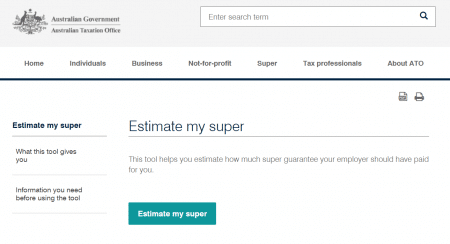
Super Guarantee & Rate Increase – A Quick Guide
- RetireOn
- Updated: March 13, 2024
Does 9.5% ring a bell? It should!
This is the current percentage that is deducted from your payslip and put into your nominated super account.
This is called the Superannuation Guarantee, or “SG” for short. But did you know that this percentage will change in the future?
In this post and video, we will discuss when and how much this will change, as well as other essential information regarding the SG.
Video Guide
What Is Super Guarantee?
Nearly all employed Australians are putting money into a super fund. The superannuation guarantee ensures that 9.5% of your salary is paid into your nominated super fund by your employer.
This is a way to make sure that you save money for retirement, and is something that happens more or less automatically. Most people do not generally worry about it because they do not know or understand the details that surround it.
Continue reading to understand the basics and the changes that will occur in the near future.
Super Guarantee Eligibility
First, let’s discuss eligibility. As the law states, your employer must pay SG if you earn more than $450, before tax, within a calendar month.
This affects all full-time, part-time, or casual employees, and this is why most Australians are affected by this Superannuation Guarantee.
There are several circumstances in which others are also eligible, including:
- Employees under 18 years and domestic workers, such as nannies, if they work for more than 30 hours per week
- Employees who are a company director or family member working in a business
- Workers who are receiving a super pension, annuity, or transition-to-retirement payments
- Temporary residents
If you are still unsure of whether or not you are entitled to super, you can visit the ATO website for further help.
If you are eligible, it is up to you to make sure that your employer pays your superannuation guarantee.
How To Calculate the Super Guarantee
Now that you are familiar with whether or not you are eligible, you should know how the contribution is calculated.
In the simplest sense, it is 9.5% of your Ordinary Time Earnings (OTE). What is that, exactly? OTE is generally what you earn for your usual hours of work.
Ordinary Time Earnings includes:
- Over-award payments
- Commissions
- Shift loading
- Annual leave loading
- Allowances
- Bonuses
However, it does not include over time, even if you are paid on an hourly rate, are getting a specific loading, or if your payments are calculated as an annualised or lump sum component of a total salary package.
There is a convenient tool on the official ATO website you can also utilise to estimate your super.

Changes To The Super Guarantee
The SG has been increasing over the past years and will continue to do so. It does, however, depend on the political changes.
For example, it was supposed to increase to 10% in July 2015, but the government decided to slow down the increase. Here are the current planned future increases:
| Period | Super Guarantee Rate |
| 1 July 2002 – 30 June 2013 | 9.00% |
| 1 July 2013 – 30 June 2014 | 9.25% |
| 1 July 2014 – 30 June 2021 | 9.50% |
| 1 July 2021 – 30 June 2022 | 10.00% |
| 1 July 2022 – 30 June 2023 | 10.50% |
| 1 July 2023 – 30 June 2024 | 11.00% |
| 1 July 2024 – 30 June 2025 | 11.50% |
| 1 July 2025 – 30 June 2026 and onwards | 12.00% |
These changes depend on the government, and as such, they could differ again in the future.
It is essential to know about these changes, because they may affect how much money you will receive in your bank account on your payday. Even if you receive less due to the higher percentage, it shouldn’t be viewed as a negative thing, and it doesn’t mean you are losing money.
It will be put into your super fund, so you will be saving more money for your retirement, and this is a huge advantage.
An article published recently, in June 2019 by the World Economic Forum, states that retirees are at risk of running out of funds during their retirement. Why is this?
Life expectancy is steadily increasing, but the retirement savings account doesn’t align with this age increase. People are, unfortunately, at risk of outliving their savings.
What does this mean for your in regards to your super?
You need first to make sure that all of your super has been paid by your employer, and then, you need to optimise your super fund.
We have created two videos/articles that can help you with this! They will show you:
- How to choose a good fund, and;
- How to save a lot by choosing a fund with small fees
So, this is what we wanted to share with our fellow future retirees. Is there something else, in particular, you would like to know? You can leave us a comment below!
For more informative retirement tips, guidelines, ideas, and explanations, you can navigate to our YouTube channel or our Free Learning page.










